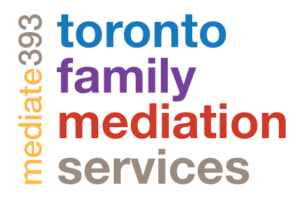Research supports in-person shuttle mediation in family violence cases
02.12.2024

by Hilary Linton
On February 1, 2024, I spoke to about 200 webinar registrants from across North America about the latest tool to help family mediators do good work— the MASIC-S online screening tool.
The webinar was hosted by London Ontario’s Centre for Research and Education on Violence Against Women and Children (CREVAWC), and featured Amy Applegate, a co-creator of the MASIC-S, and Annamaria Walsh, Director of the ADR Division of the Maryland Appellate Courts, and whose agency has extensive experience using the new online tool.
This free 90-minute program featured a summary of research* showing that mediation in cases involving family violence can be safe, effective and empowering if there is proper screening, using a screening tool like the MASIC-S, and the mediation is designed in a safe way.
The research shared by Ms. Applegate shows that for cases involving higher levels of family violence, in-person, shuttle mediation with effective screening and safety planning is almost always preferable to virtual (video) mediation, even when the parties are kept in separate virtual breakout rooms.
Mediators found that in-person shuttle mediation was more comfortable for them and their clients and had a positive impact on the outcome of the case and the ability of the parties to reach agreement. Video mediations were half as likely to reach a settlement than in-person shuttle mediation.
This research bolsters the value of screening tools like the MASIC-S, a tool that is used by all the mediators on our court-connected rosters in Toronto.
I noted that court-connected family mediation across Ontario is provided by accredited mediators who are well-trained in screening for family violence and power imbalances. As well, the Family Law Rules encourage judges to order parties attending conferences to mediation intake meetings, where they can meet with a mediator and be screened for power imbalances and family violence, and receive support and referrals, whether they proceed to mediation or not.
The webinar features an excellent demonstration of a mediator (AnnaMaria Walsh) using the MASIC-S with a client (Amy Applegate), highlighting the value of this new, short set of questions and the guidance it provides the mediator based on the client’s responses.
Follow this link to watch the full webinar.
*Immediate Outcomes: Holtzworth-Munroe, A., Beck, C. J., Applegate, A. G., Adams, J. M., Rossi, F. S., Jiang, L. J., Tomlinson, C. S., & Hale, D. F. (2021).
Psychology, Public Policy, and Law, 27(1), 45-64. http://dx.doi.org.proxyiub.uits.iu.edu/10.1037/law0000278
*Follow-Up Findings: Holtzworth-Munroe, A., Applegate, A.G., Beck, C.J., Rossi, F.S., Adams, J.M., Jiang, L.J., Tomlinson, C.S., & Hale, D.F. (2021).
Psychology, Public Policy, and Law, 27(4), 581-596. https://doi.org/10.1037/law0000309

